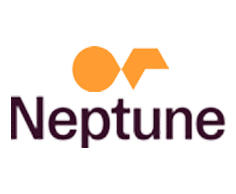2023 was undoubtedly the year of Generative Artificial Intelligence, which today promises to take us into a new era of productivity. Given this premise, what will this new year have in store? Today, as 2024 gets underway, we present the top five data trends, five strategies that will be focused on increasingly distributed data over the course of this year.
Data trend 2024: how to manage the data

Data anti-gravity, generative AI, cloud-related cost management, and simplified data security and governance. These are the 5 trends that will drive data management in this new year. To achieve success, data-driven companies must anticipate an environment in which data distribution will be increasingly broad. Traditional approaches, which involve the physical duplication of data from various systems into a centralized repository such as a data warehouse or a data lake, are obsolete for increasingly widespread and evolving data. In contrast, a logical approach to data management enables real-time connections to heterogeneous data without the need for replication, offering clear advantages in terms of timing, cost and resource optimization. Such solutions will not only promote a robust data culture but also make 2024 a transformational year in the enterprise’s approach to managing, using and leveraging the data used by the business. But let’s go into more detail by plumbing in depth the data trends that will make history this 2024.
Data trend 2024: secure and informative management

Let us start with the first trend antigravity of the data. Cloud, cloud data lake and/or cloud data warehouse will remain crucial, however, it will be impossible to rely on a single provider to meet every data and analytics need. Over the past two decades, data warehouses and data lakes have healed various business problems while creating others, both because they are part of on-premise and cloud systems and because they are geographically dispersed. In addition, each cloud service provider tries to solve problems on data and analytics independently even though most organizations manage their data in a multi-cloud environment. But data antigravity will dictate the law in 2024. This means that in a context where quality and provenance of information used to be relevant, today, in a world focused on Artificial Intelligence, they become indispensable elements. In an age when trust in data is paramount, clearly understanding the origin of information has become a must to ensure secure and informative management.
Data trend 2024: data as a product

In the age when data drives decisions, the perspective extends beyond just data integration. Now, the focus is on optimizing the entire end-user experience. Modern platforms need to evolve, incorporating features reminiscent of the practices of eCommerce giants, providing personalized suggestions, and fostering an interactive feedback loop to best meet users’ needs. This year, the concept of data mesh is expected to become a priority in data management transformations, embracing their inherently distributed nature. Unlike traditional, centralized models in which a central team manages data for the entire organization, data mesh takes a more decentralized approach. It organizes data around specific domains, with management entrusted to those with specific expertise in each domain. It then groups together Data Products of common interest, facilitating consumption that promotes autonomy and efficiency. And here, data will have a new form and will increasingly be treated as products which can be refined, sold, traded, etc. ergo: the more the data product is used, the greater its value. Indeed, this new approach, promises to revolutionize their management and access.
Data trend 2024: the adoption of generative AI

The entry ofGenerative AI promises to revolutionize data management by introducing innovative tools and technologies. However, enterprises are facing several challenges during the process of integrating Generative AI and large language models (LLMs): from data quality and governance to ethical compliance and cost management. Each of these challenges affects the overall data management strategy, determining the ability to ensure its integrity to train AI models, compliance with complex regulatory guidelines, and the ease of integrating the model into existing systems. Without the ability to ensure access to reliable, high-quality data, Generative AI risks being unable to create a functional infrastructure to manage them. Successfully overcoming these challenges will be crucial to fully exploiting the transformative potential of generative AI for the analytics world
Data trend 2024: cloud-related cost management
Let’s now examine another fascinating trend involving the migration of data to the cloud, which is hindering businesses because of rising costs. Unlike on-premise data storage, hosting and management in the cloud, rising costs create difficulties in budget forecasting and planning. Therefore, for 2024, the main goal is to mimic the costs associated with using the cloud while ensuring high quality standards and competitive performance. Companies will be required to carefully examine expenses, identify inefficiencies, and consider more cost-effective storage options. Adopting FinOps principles, which combine financial accountability with the versatile cloud spending model, will enable organizations to strike an effective balance between cost management and operational efficiency. This will ensure that data strategies are not only cost-effective, but also robust and sustainable in the long run.
Data trend 2024: data security and governance

Last but not least, the trend that occupies a top position is definitely data security and governance, aspects that require special attention and constant protection. However, upgrading numerous isolated systems can be a lengthy and complex process, in addition to the fact that it is virtually impossible to ensure simultaneous protection and governance of all enterprise systems. To address this challenge, companies are adopting comprehensive data security and governance policies based not only on users’ roles, but also on their location. In addition, as data remains distributed across on-premise and cloud systems, it is essential that data security and governance is not a barrier to access, collaboration and innovation. And here in this new we will see the growth of solutions aimed at simplifying these aspects. Such an environment enables logical data management platforms to offer three crucial benefits for security and their governance: 1.reduction of risk through less proliferation of data copies; 2.centralization of access control and monitoring across disparate systems; and 3.detachment of policies from the various data sources, providing flexible and continuous control over enterprise data security and management.
Conclusion

To conclude the discussion so far, the analysis of emerging trends in data management offers an in-depth look at how the dynamics are evolving. From the shift to the cloud to the challenges of security and governance, via the adoption of generative AI and the importance of logic in management, it becomes clear how the business landscape is facing truly significant transformations, where among them the need to balance technological innovation with data security manifests itself as a recurring theme. According to the trend and context, the expectation is that enterprises in this new year will increasingly focus their strategies on rational and secure data management, seeking solutions that maintain operational efficiency without compromising security. The adoption of approaches such as data meshing,generative AI , and FinOps strategies represent key solutions for successfully navigating this changing environment, paving the way for a future in which intelligent data management becomes a key pillar for business success.










